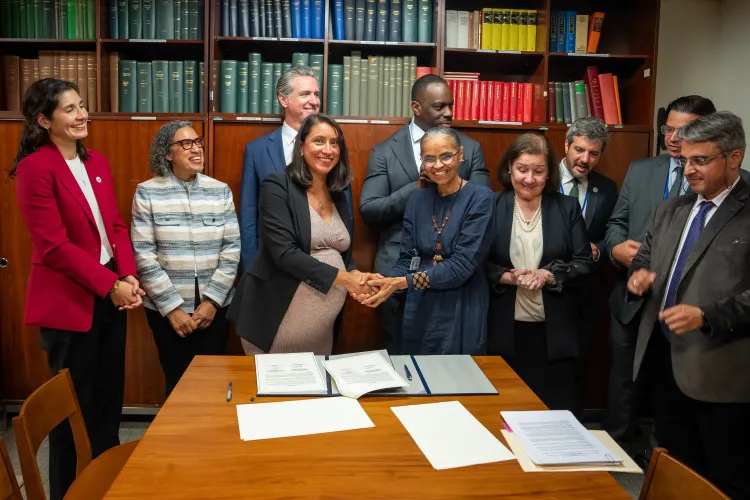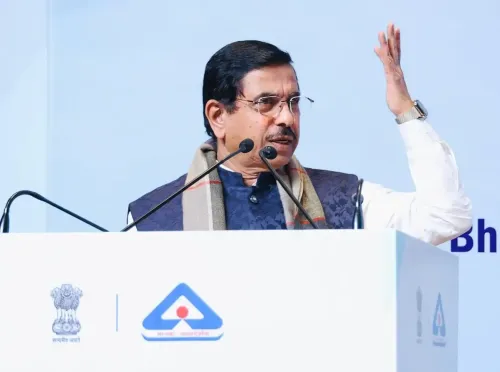Have Brazil and California Formed a New Climate Partnership to Reduce Pollution?

Synopsis
Key Takeaways
- California and Brazil have established a new climate partnership.
- The focus is on reducing pollution and enhancing clean energy.
- A Memorandum of Understanding was signed between Gavin Newsom and Marina Silva.
- The partnership aims for climate neutrality by 2050 for Brazil and 2045 for California.
- This collaboration highlights the importance of global cooperation in addressing climate change.
New York, Sep 25 (NationPress) The US state of California and Brazil have unveiled an enhanced partnership aimed at intensifying collaboration on climate issues, clean energy initiatives, pollution reduction, and generating job opportunities within the climate sector.
California's Governor Gavin Newsom held discussions with Brazilian Minister of Environment and Climate Change Marina Silva in New York on Tuesday (local time).
The parties formalized their commitment by signing a Memorandum of Understanding (MoU) dedicated to addressing climate change, which encompasses forest conservation, lowering greenhouse gas emissions and air pollution, and improving livelihoods within global forest regions, as stated in a press release from Newsom's office.
“By enhancing our alliance with Brazil, California is emphasizing a fundamental truth: addressing global challenges necessitates international collaboration,” remarked Newsom. “This statement holds particular significance as we anticipate the UN's Global Climate Conference that Brazil will host later this year.”
Minister Silva highlighted that collaborations with subnational governments, like the MoU established with California, are crucial to ensure ongoing climate action in the United States, benefiting both its citizens and humanity at large, according to reports from the Xinhua news agency.
“This pledge will assist Brazil and California in realizing their climate neutrality objectives by 2050 and 2045, respectively,” she added.
This development occurs amidst recent tensions in US-Brazil relations, particularly following tariff increases implemented during the Trump administration.
On September 19, Brazil reported that the United States had prevented Brazilian Health Minister Alexandre Padilha from attending a Pan American Health Organization meeting in Washington by imposing visa restrictions.
Padilha was granted a visa to accompany Brazilian President Luiz Inacio Lula da Silva at the UN General Assembly in New York next week, but it confines him to a limited area around the UN headquarters and his hotel, obstructing travel to Washington.
Referring to the visa restrictions as “unacceptable,” Padilha stated his intention to remain in Brazil. The Health Ministry criticized the decision as arbitrary, emphasizing that Brazil's involvement in the meeting is crucial for a regional vaccination initiative involving Argentina and Mexico.
Recently, the United States has enacted sanctions against Brazilian Supreme Court justices and increased tariffs on Brazilian imports, actions linked to former President Jair Bolsonaro's conviction for attempting a coup.










